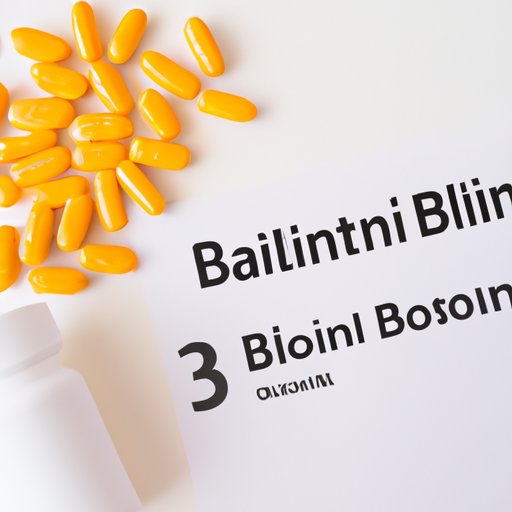
Introduction
Vitamin B3, also known as niacin, is an essential nutrient that the body needs to function properly. From regulating cholesterol to improving skin health and brain function, this vitamin plays an essential role in maintaining overall health. In this article, we’ll take a closer look at the health benefits of vitamin B3 and how it can help solve various health problems.

The Health Benefits of Vitamin B3: What You Need to Know
Vitamin B3 is known for its various health benefits. It can help regulate cholesterol levels, support healthy digestion, reduce inflammation, and much more. What sets niacin apart from other B vitamins is its unique property to help dilate blood vessels, leading to potential benefits to improve blood flow.
The Role of Vitamin B3 in Energy Production and Metabolism
Vitamin B3 is essential for converting food into energy. It helps the body metabolize carbohydrates, proteins, and fats, and has been linked to several metabolic processes. A diet rich in vitamin B3 can also support thyroid function, improve insulin sensitivity, and regulate metabolism.
How Vitamin B3 Can Help Improve Skin Health
Vitamin B3 is often found in skincare products for a good reason. It has been shown to have numerous benefits for the skin, including the reduction of wrinkles and fine lines. Niacin can also help decrease the appearance of dark spots and improve overall skin texture..
Vitamin B3 and Brain Function: What Science Tells Us
Research suggests that vitamin B3 supports brain function by protecting against cognitive decline, improving memory, and reducing inflammation in the brain. Several studies link the intake of vitamin B3 and cognitive memory.
Foods High in Vitamin B3: Boost Your Intake and Improve Your Health
To increase your vitamin B3 intake, consider adding foods rich in niacin to your diet. These include meats like chicken and beef, fish like tuna and salmon, and certain vegetables such as mushrooms and asparagus.
Vitamin B3 and Cardiovascular Health: What You Need to Know
Vitamin B3 can help support cardiovascular health by reducing inflammation, improving cholesterol levels, and supporting blood vessel health. In a mediaeval study, niacin has been shown to help reduce both low-density lipoprotein (LDL) & triglyceride levels, thanks to its beneficial effects on the blood.
Vitamin B3 Deficiency: Causes, Symptoms, and Treatment
Vitamin B3 deficiency is rare but can occur due to poor diet, certain medical conditions, or alcoholism. Symptoms can include fatigue, skin rashes, digestive issues, and other symptoms. Vitamin B3 deficiency can be treated or prevented through dietary changes or supplements.
Conclusion
Vitamin B3 is essential for maintaining overall health, from energy production and metabolism to supporting brain function and cardiovascular health. By adding foods high in niacin to your diet or considering vitamin B3 supplements, you can potentially alleviate various health problems and improve your overall well-being.





